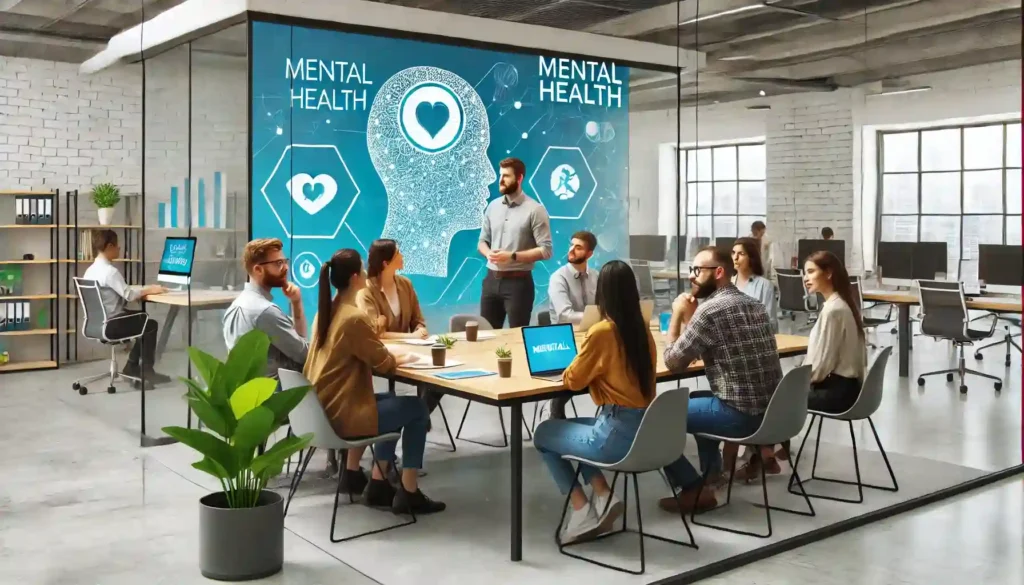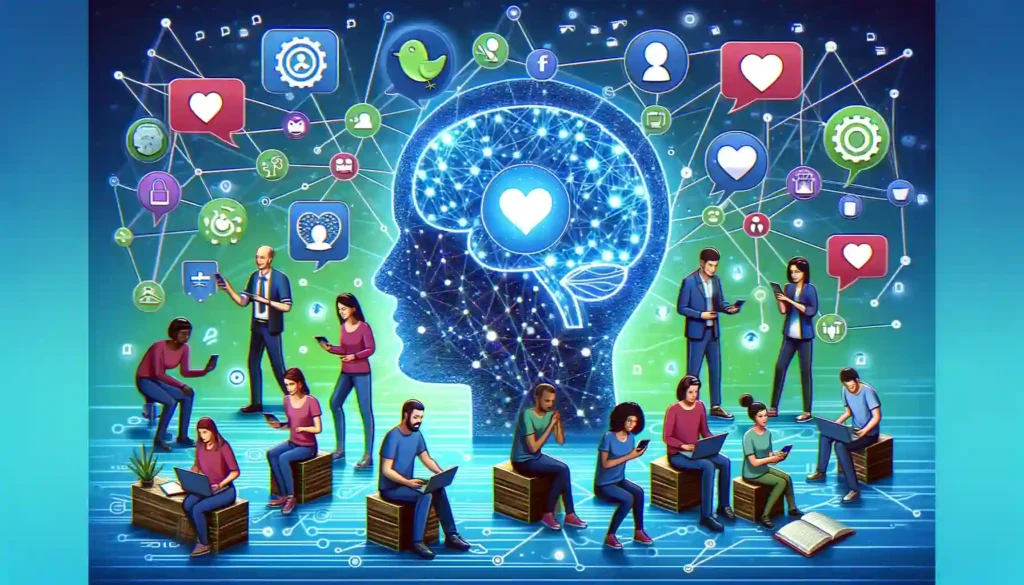Mental health awareness is crucial for creating a supportive and understanding society. Unfortunately, stigma surrounding mental health issues can prevent individuals from seeking help. This article explores strategies for breaking the stigma and promoting mental health awareness.
It’s okay to not be okay.
— Unknown
This quote highlights the importance of acknowledging and accepting mental health struggles as a normal part of life.
Understanding Mental Health Stigma
Stigma surrounding mental health can manifest in various ways, leading to discrimination and social exclusion.
What is Mental Health Stigma?
- Definition: Stigma involves negative attitudes and beliefs that lead to discrimination against people with mental health issues.
- Types: Can be social, self, or institutional.
Impact of Stigma on Individuals
- Reduced Help-Seeking: People may avoid seeking help due to fear of judgment.
- Isolation: Stigma can lead to social isolation and loneliness.
Stigma is shame. Shame causes silence. Silence hurts us all.
— Kevin Hines
Kevin Hines’ quote emphasizes that stigma leads to silence, which can be damaging to individuals and society.

Promoting Mental Health Awareness
Raising awareness about mental health is essential for breaking the stigma and encouraging people to seek help.
Education and Information
- Public Campaigns: Use media to spread awareness and correct misconceptions.
- School Programs: Implement mental health education in schools.
Personal Stories and Advocacy
- Sharing Experiences: Encourage individuals to share their mental health journeys.
- Advocacy Groups: Support organizations that advocate for mental health awareness.
The strongest people are those who win battles we know nothing about.
— Unknown
This quote highlights the hidden struggles many face, underscoring the importance of awareness and empathy.
Supporting Mental Health in the Workplace
Workplaces play a crucial role in promoting mental health and supporting employees who may be struggling.
Creating a Supportive Environment
- Open Dialogue: Encourage conversations about mental health.
- Employee Assistance Programs: Provide access to mental health resources and support.
Training and Awareness
- Manager Training: Train managers to recognize and address mental health issues.
- Workshops and Seminars: Offer educational sessions on mental health.
Your mental health is a priority. Your happiness is an essential. Your self-care is a necessity.
— Unknown
This quote emphasizes the importance of prioritizing mental health and self-care, especially in the workplace.

Strategies for Breaking the Stigma
Implementing effective strategies can help reduce stigma and promote mental health awareness.
Encouraging Open Conversations
- Safe Spaces: Create environments where people feel safe to discuss their mental health.
- Peer Support: Promote peer support groups and networks.
Media Representation
- Positive Portrayals: Advocate for accurate and positive portrayals of mental health in the media.
- Challenging Stereotypes: Address and challenge harmful stereotypes and myths.
We need to change the culture of this topic and make it okay to speak about mental health and suicide.
— Luke Richardson
Luke Richardson’s quote underscores the need for cultural change to make discussions about mental health more acceptable.

Role of Social Media in Mental Health Awareness
Social media can be a powerful tool for raising awareness and breaking the stigma surrounding mental health.
Positive Use of Social Media
- Sharing Resources: Use social media platforms to share mental health resources and information.
- Building Communities: Create online communities for support and advocacy.
Addressing Negative Aspects
- Combating Cyberbullying: Take measures to prevent and address cyberbullying.
- Promoting Healthy Use: Encourage balanced and healthy use of social media.
Social media is not the problem. It’s the imbalance in its use that is.
— Unknown
This quote emphasizes that while social media has its challenges, its balanced use can be beneficial for mental health awareness.
The Importance of Self-Care in Mental Health Awareness
Self-care is a crucial aspect of maintaining mental health and well-being.
Self-Care Practices
- Physical Activity: Regular exercise to boost mood and reduce stress.
- Mindfulness and Meditation: Practices that promote relaxation and mental clarity.
Seeking Professional Help
- Therapy and Counseling: Professional support can provide valuable tools and strategies.
- Medication: When necessary, medication can be a vital part of treatment.
Self-care is how you take your power back.
— Lalah Delia
Lalah Delia’s quote highlights the empowering nature of self-care in managing mental health.
Building Resilient Communities for Mental Health Awareness
Communities play a vital role in supporting mental health and breaking the stigma.
Community Programs
- Support Groups: Local support groups for individuals facing mental health issues.
- Community Events: Events that promote mental health awareness and education.
Partnering with Organizations
- Nonprofits and NGOs: Collaborate with organizations dedicated to mental health.
- Local Government: Work with local authorities to promote mental health initiatives.
Alone, we can do so little; together, we can do so much.
— Helen Keller
Helen Keller’s quote underscores the power of community and collective action in promoting mental health awareness.
For more insights into mental health and wellness, explore our articles on Mindfulness Practices and Building Resilient Communities. Stay updated with the latest trends in mental health by visiting Mental Health America and NAMI.
















Your article helped me a lot, is there any more related content? Thanks!